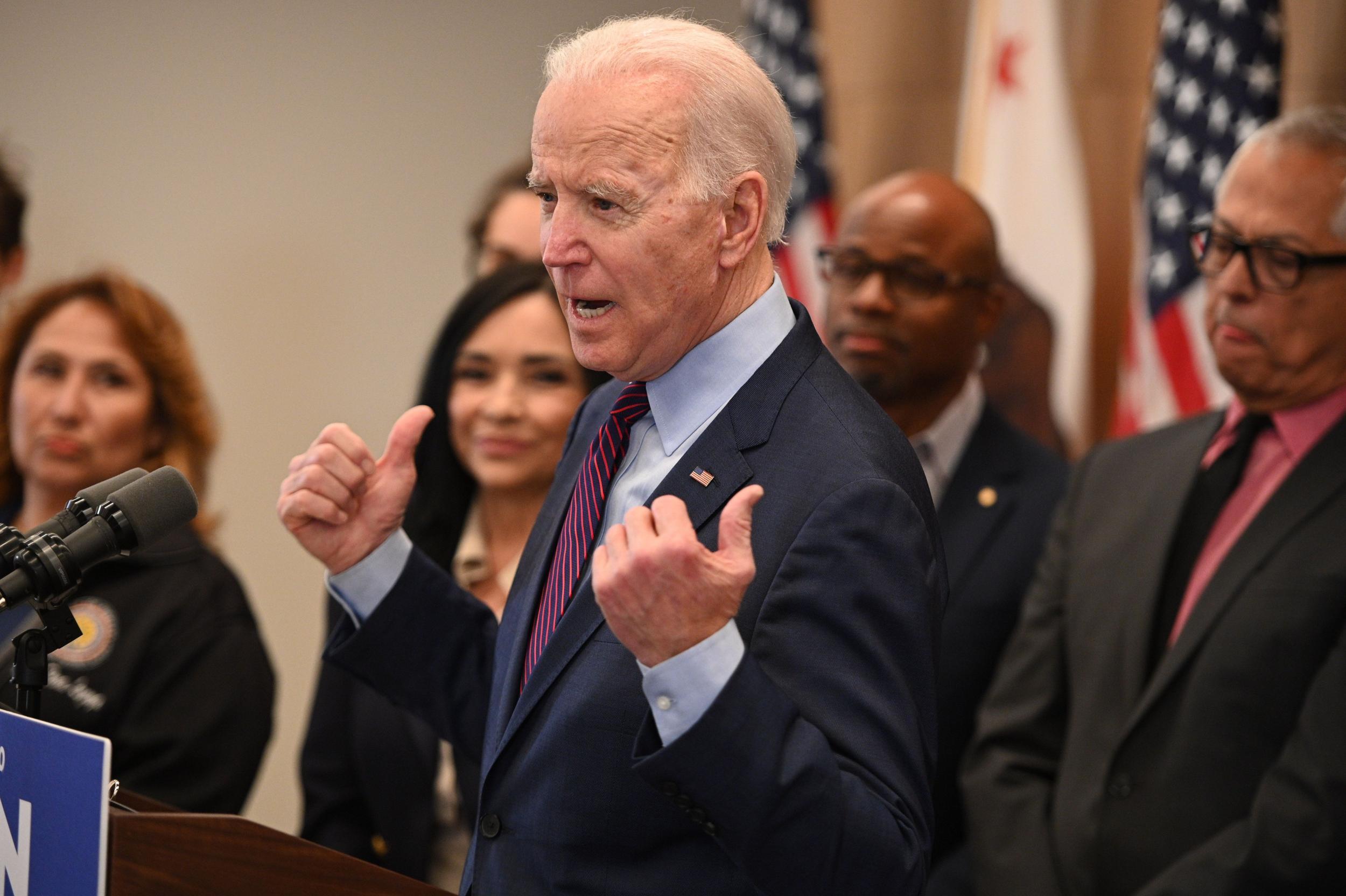After the most extraordinary Democratic primary so far, March 10 will tell us everything we need to know
New Democrats from the 2018 midterms are combining forces with some big names — and how different demographics plan to vote has become a lot clearer


Your support helps us to tell the story
From reproductive rights to climate change to Big Tech, The Independent is on the ground when the story is developing. Whether it's investigating the financials of Elon Musk's pro-Trump PAC or producing our latest documentary, 'The A Word', which shines a light on the American women fighting for reproductive rights, we know how important it is to parse out the facts from the messaging.
At such a critical moment in US history, we need reporters on the ground. Your donation allows us to keep sending journalists to speak to both sides of the story.
The Independent is trusted by Americans across the entire political spectrum. And unlike many other quality news outlets, we choose not to lock Americans out of our reporting and analysis with paywalls. We believe quality journalism should be available to everyone, paid for by those who can afford it.
Your support makes all the difference.The past two weeks have certainly been some of the most remarkable in primary election history. Two weeks ago, Senator Bernie Sanders (I-VT) was the frontrunner of the Democratic primary and fresh off a massive win in the Nevada caucuses. Democrats had failed to coalesce around a moderate alternative to the self-proclaimed democratic socialist, and the media narrative was that Bernie Sanders was inevitable.
How times have changed.
Ten days ago, former vice president Joe Biden had never won a single primary race in the three times he'd run for the Democratic nomination. He's since won the South Carolina primary by 30 points, 10 of the 14 Super Tuesday states, and now has a 93 per cent chance of winning the Democratic nomination, according to FiveThirtyEight's forecast model. As tomorrow's primaries are set to kick off in Michigan, Washington, Missouri, Mississippi, Idaho, and North Dakota, we need to look at how we got here to understand what impact those states will have on the race.
What we saw in Iowa, New Hampshire, and Nevada was multiple moderate candidates splitting the vote while less progressive-minded voters failed to coalesce around a single person. Black voters in South Carolina essentially said, "Fine, we'll do it for you." In doing so, they played their continuing role as the compass of the modern Democratic Party, choosing who they thought would be best suited to defeat Donald Trump.
Before South Carolina's February 29th primary, state legend Rep. Jim Clyburn (D-SC) gave an impassioned endorsement of Joe Biden that put him over the top. Biden won over 60 per cent of black voters in the state. Hours after the loss on Saturday night, and a day after literally backing that thang up with rapper Juvenile at one of his rallies, Tom Steyer dropped out the race. Then came the winnowing.
Former South Bend Mayor Pete Buttigieg (D) and Senator Amy Klobuchar (D-MN) both dropped out the race and endorsed Biden. Former Texas Congressman Beto O'Rourke joined Biden's Texas rally the night before Super Tuesday to give his endorsement as well. With that momentum at his back, Biden launched into Super Tuesday amassing wins with demographics that looked much like the 2018 midterm coalition.
While Sanders did win in California, Biden locked in wins in states he wasn't expected to in Minnesota, Oklahoma, and Massachusetts. In states across the southeast, Biden won the black vote with over 60 per cent of the vote. Where turnout was highest, in states like Texas and Virginia, Biden also won, which undercut Sanders' argument that he was widening the electorate in his favor.
The 2018 coalition was most evident in Virginia. Having grown up in the suburbs that turned Virginia blue in the 2017 gubernatorial and 2019 legislative elections, I can tell you these shifts have been very real on the ground. Those elections reflected what national data has showcased: that President Trump has turned white suburban women away from the Republican Party in droves. This may have been responsible for turnout in the Virginia Democratic Primary doubling from 2016, as well as for Biden winning the state by 30 points.
Defeating Donald Trump has been the singular goal of the Democratic base. Unfortunately, that singular mission has thwarted the campaigns of brilliant women like Elizabeth Warren, Amy Klobuchar, and Kamala Harris. The sexist idea that a woman isn't “electable” forgot the fact the 2018 victories were led by women. This electability question has also plagued Sanders, but for more realistic reasons.
Sanders raised some electability concerns in the weeks he was the frontrunner. Ahead of the South Carolina primary, he tripled down on his praise of Fidel Castro's literacy program, which tanked him in Florida polls. When moderates — the very same Democrats who won the House in 2018 — raised concerns that Sanders' Medicare For All stance might harm them down-ballot, Sanders continued his anti-establishment rhetoric. Sanders also continued to attack the establishment after Biden's South Carolina win, which seemingly undermined the personal agency of black voters. This isn't coalition-building stuff and there certainly doesn’t appear to be an appetite for it after three years of the Trump presidency.
With this in mind, the March 10 primaries become hugely important for Bernie Sanders, especially Michigan. Michigan has 125 delegates up for grabs and it's a state that Sanders won in 2016 against Hillary Clinton. But as we approach the primary this year, it appears he has lost his tight grip on the white working class and rural demographics that he won in the state to edge out Clinton back then. Sanders has strength with young voters and Latinx voters, but with the youth vote failing to turn out in the numbers he expected, it's unclear that will make a difference for him.
This is where the 2018 coalition comes into play. In 2018, moderate Democrat Gretchen Whitmer became governor of Michigan, while Haley Stevens (D) and Elissa Slotkin (D) became congresswomen. All three flipped Republican seats and all three have endorsed Joe Biden. We now have Senators Kamala Harris (D-CA) and Cory Booker (D-NJ) endorsing Biden over the weekend, with Mike Bloomberg pledging to put his billions behind the eventual nominee.
The Democratic Party has become a very wide tent of shared values, consisting of a diverse coalition of moderates and progressives with varying backgrounds. The bottom line is this: Democratic voters are making it clear they're not sure Bernie Sanders is the leader that can bring that kind of party together, never mind the entire country against Donald Trump. Unless he shifts his rhetoric to a more inclusive message that doesn't alienate the majority of the party — and therefore, presumably, the majority of the general electorate — his loss is all but inevitable.
Join our commenting forum
Join thought-provoking conversations, follow other Independent readers and see their replies
Comments